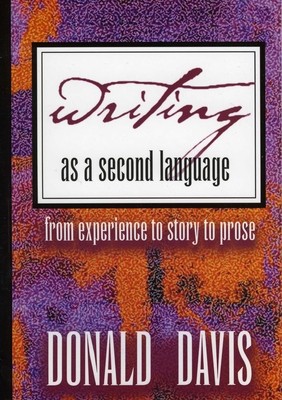
- We will send in 10–14 business days.
- Author: Donald Davis
- Publisher: August House Publishers
- ISBN-10: 0874835674
- ISBN-13: 9780874835670
- Format: 13.1 x 19.3 x 0.9 cm, minkšti viršeliai
- Language: English
- SAVE -10% with code: EXTRA
Reviews
Description
Winner of the Storytelling World Award "Stop talking! You're supposed to be working on language!" --overheard in an elementary classroom by award-winning writer and storyteller Donald Davis. From the moment they are born, we encourage children to talk. We enunciate for them, applaud their expanding vocabularies, and hang on their every word. That is, until they enter school. At that time, we expect them to stop talking and measure their language abilities through a new medium: writing. While the educational system focuses on the written product as the sole measurement of language development, many children fail to measure up to established standards. Why? Because, Davis observes, writing is not our first communications tool; for most of us it functions as a "foreign language." The problem is, individuals are not capable of "creating" or "thinking" within a foreign language. Davis argues that we must step back into our familiar "first" language--the spoken word--as our creative medium and learn to "translate" into that new foreign language called writing. With enough success, writing will eventually become a second language instead of a foreign language. When we talk about language arts in our school, we focus on reading and writing instead of nourishing the whole oral and kinesthetic package that is our spoken language. Davis argues that talking and writing should not be mutually exclusive in language development. In this book, he lays out the method he has used successfully in countless residencies at schools across the United States, working with adults, teens, children, and teachers to develop their personal writing style.
- Author: Donald Davis
- Publisher: August House Publishers
- ISBN-10: 0874835674
- ISBN-13: 9780874835670
- Format: 13.1 x 19.3 x 0.9 cm, minkšti viršeliai
- Language: English English
Winner of the Storytelling World Award "Stop talking! You're supposed to be working on language!" --overheard in an elementary classroom by award-winning writer and storyteller Donald Davis. From the moment they are born, we encourage children to talk. We enunciate for them, applaud their expanding vocabularies, and hang on their every word. That is, until they enter school. At that time, we expect them to stop talking and measure their language abilities through a new medium: writing. While the educational system focuses on the written product as the sole measurement of language development, many children fail to measure up to established standards. Why? Because, Davis observes, writing is not our first communications tool; for most of us it functions as a "foreign language." The problem is, individuals are not capable of "creating" or "thinking" within a foreign language. Davis argues that we must step back into our familiar "first" language--the spoken word--as our creative medium and learn to "translate" into that new foreign language called writing. With enough success, writing will eventually become a second language instead of a foreign language. When we talk about language arts in our school, we focus on reading and writing instead of nourishing the whole oral and kinesthetic package that is our spoken language. Davis argues that talking and writing should not be mutually exclusive in language development. In this book, he lays out the method he has used successfully in countless residencies at schools across the United States, working with adults, teens, children, and teachers to develop their personal writing style.


Reviews